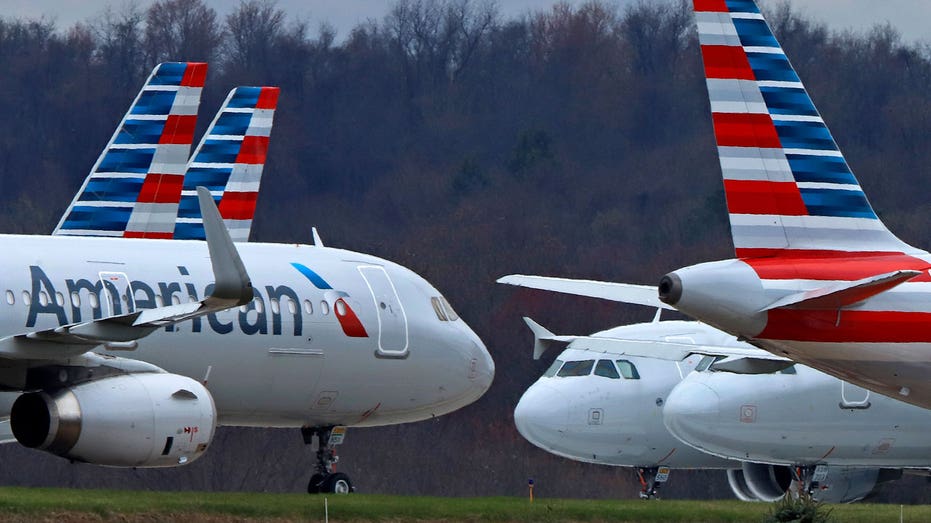Travel Headaches Highlight Urgent Need for Airline Tech Job Focus

Sarah Johnson
March 9, 2025
Brief
Lawmakers and experts emphasize improved jet maintenance training to boost airline safety, address workforce shortages, and create high-paying aviation careers through expanded education and legislative support.
As concerns over airline safety grow following several high-profile incidents on American tarmacs and in the skies, experts and lawmakers are spotlighting the need for improved training in jet maintenance—a critical yet often overlooked sector of aviation.
The need for action is clear. Airline delays and gate changes are frequently attributed to urgent aircraft maintenance. Senator Tim Scott of South Carolina is among those leading the charge, having introduced the Aviation Workforce Development Act in the last congressional session. Although the bill failed to pass, Scott remains determined to expand the "529" qualified-tuition program to cover aviation maintenance and pilot training expenses.
Scott, whose home state boasts a major Boeing manufacturing hub, emphasized the untapped potential of aviation jobs. "Unfortunately, the extensive and expensive training they require has undermined Americans’ ability to tap into this vital industry," he explained, adding that he plans to reintroduce the bill soon. He described the legislation as a "commonsense" measure to help students transition into high-paying aviation careers while supporting South Carolina’s booming tourism and travel industries.
Jason Pfaff, president of the Aviation Institute of Maintenance, echoed Scott's sentiment. His institution, which operates 15 campuses nationwide, is working to fill 13,000 annual job openings in aircraft maintenance. Pfaff highlighted the critical role of maintenance workers in ensuring air travel safety, particularly in light of recent incidents such as a deadly crash off Hain’s Point, D.C., and a jet landing upside down in Toronto. "The aviation industry relies on highly trained experts to keep planes safe and operational, yet many people don’t realize the demand for these roles—or the impact they have on air travel," Pfaff said.
Despite the lucrative salaries—some jobs pay upwards of $150,000 annually for workers in their 20s—there’s a lingering social stigma surrounding technical careers. Pfaff recounted how a student initially hesitant about pursuing aircraft maintenance changed her mind after witnessing the intricate work firsthand. He praised efforts by lawmakers like Scott for spotlighting opportunities in the field, stating, "Aviation maintenance isn’t just a job—it’s a high-paying, high-skill career that keeps the world moving."
Education leaders are also weighing in. Jose-Marie Griffiths, president of Dakota State University, stressed the importance of tailoring higher education to meet evolving workforce needs. "Higher education institutions must adapt to meet the needs of students at different points in their lives and careers," she noted, emphasizing that traditional four-year degrees aren’t the only pathway to success.
On the legislative front, Rep. Max Miller of Ohio introduced a similar bill in the House last cycle, proposing a $1 million grant program for training in airline maintenance and related sectors. Miller underscored the value of career and technical education, stating, "A four-year degree is not right for everyone, and our young people should know that they can lead successful careers based on technical expertise."
As the nation grapples with ongoing air travel challenges, there’s a growing consensus that addressing the skilled labor gap in aviation maintenance could have a profound impact on safety, efficiency, and economic opportunity. The skies may be turbulent, but the solutions are within reach—if Washington pays attention.
Topics
Editor's Comments
It’s wild how we’ve glamorized certain industries while leaving aviation maintenance—a job that literally keeps planes in the air—underappreciated. Maybe it’s time we stop steering every kid toward a four-year degree and celebrate the people who make safe travel possible. Also, $150K in your 20s? Sign me up!
Like this article? Share it with your friends!
If you find this article interesting, feel free to share it with your friends!
Thank you for your support! Sharing is the greatest encouragement for us.



